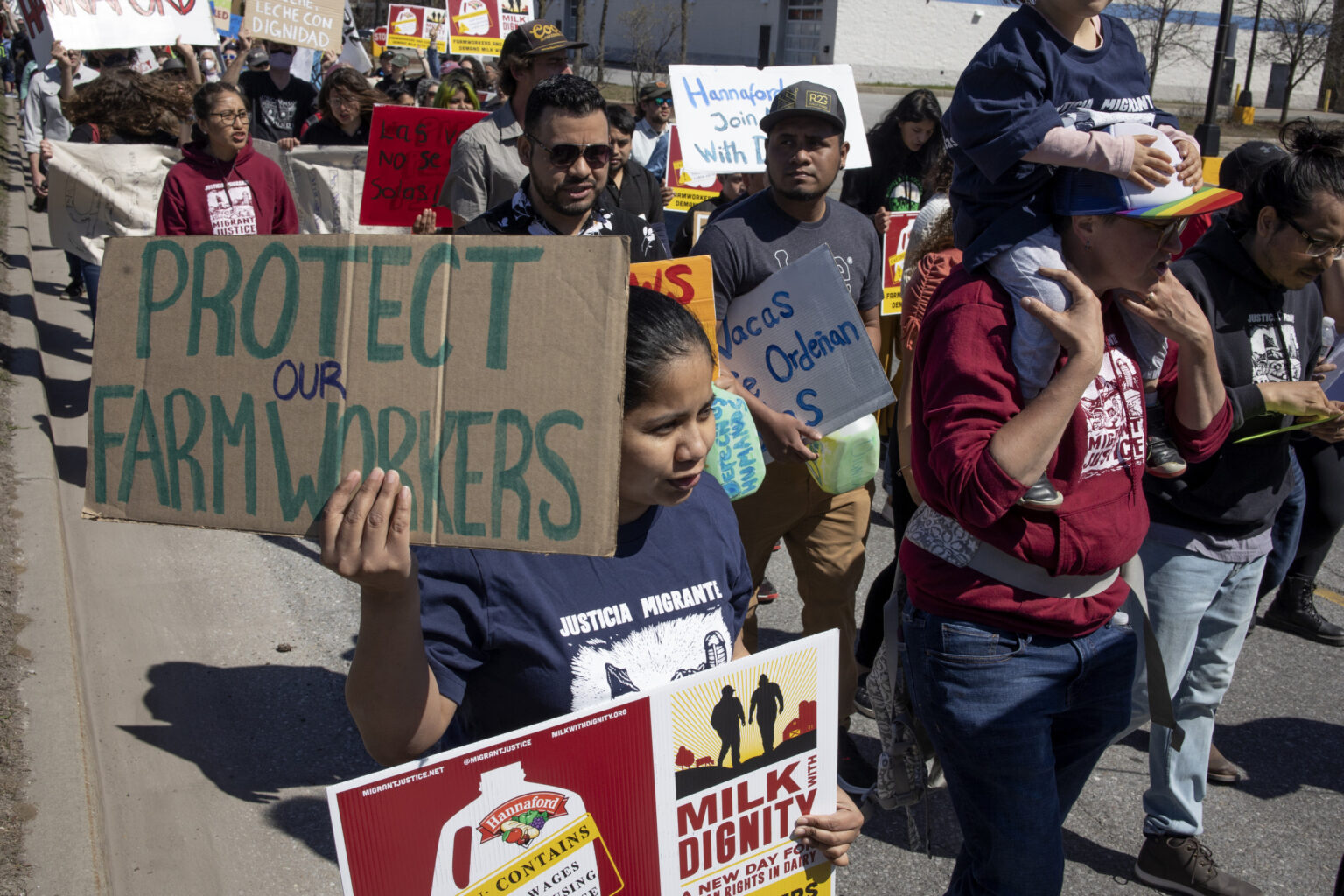Immigration enforcement operations on farms have left crops rotting and farm operations disrupted in major agricultural states including California, Texas, and Pennsylvania.
Farm owners and industry representatives report that up to 70 percent of workers stopped reporting to work following Immigration and Customs Enforcement (ICE) actions, resulting in significant crop losses and financial strain.
“We do not have enough workforce in the United States to do manual work, to do those jobs that other people are not qualified to do and do not want to do it,” Alexandra Sossa, CEO of Farmworker and Landscaper Advocacy Project, told Newsweek. “For example, we are running into a problem where we do not have enough farm workers to grow the food we eat every day.
“Now we do not have enough workers to go to the meatpacking processing industries and factories to produce, to pack the food that we are eating.”
Why It Matters
The labor shortage has drawn criticism from business leaders and renewed debate over the need for immigration and visa system reform, though Congress has yet to act to pass legislation to deliver security for farm workers.
Some of those advocating for the mass deportations of illegal immigrants believe that their jobs should be done by legal immigrants or American citizens.
What To Know
Labor shortages come amid estimates from the U.S. Department of Agriculture that nearly half of the nation’s agricultural workforce is in the country without legal status.
States like California, which produce more than one-third of the country’s vegetables and three-quarters of its fruits and nuts, rely heavily on this labor force. Farmers say the increased enforcement in June led to widespread crop loss and food waste.
Producers warn that continued labor disruptions could affect the food supply chain, drive up costs for consumers, and force farms to shut down or automate more quickly. The Pennsylvania Farm Bureau, which represents over 25,000 members, cautioned that instability in farm labor threatens both food affordability and availability nationwide.
Similar labor shortages hit the Rio Grande Valley in Texas, where reports detailed entire farms left empty for days. Official statistics showed that up to 75 percent of farm workers did not report for duty in some regions after ICE enforcement.
Consumer advocates warn of higher food prices and less reliable access to produce if labor shortages persist. Research from Oxford Economics stated native-born workers are unlikely to replace lost immigrant labor, as their employment patterns differ significantly.
The future of American agriculture and food stability may hinge on how swiftly policymakers can respond to the sector’s call for balancing enforcement with sustainable labor policies.
President Trump and the White House have given mixed messages in recent weeks on whether ICE would carry out enforcement actions on farms, as well as at hospitality businesses.
Trump initially said two weeks ago that he heard the concerns from these industries, with reports that agents had been told to pause raids. This was walked back a few days later, before Trump then said again that he was looking at a solution for farm workers specifically.
The American Business Immigration Coalition and other advocacy groups, as well as Republican Representative Andy Harris, backed the idea of a long-term solution for farm workers.
There have been some efforts in Congress to find a solution, with Representatives on both sides of the aisle reintroducing a 2019 bill in May, which would shore up the legal status of farm workers. As with many pieces of legislation around immigration, a definitive step forward is yet to be seen.
The White House told Newsweek that Trump had been working to help farmers, including eliminating 10 regulations for every new regulation, as well as negotiating the U.K. trade deal, which expanded the markets available to them.
What People Are Saying
White House spokesperson Anna Kelly, in a statement to Newsweek: “President Trump has always stood up for our farmers, who were a major part of his November victory, by working to negotiate fairer trade deals and cut red tape. He will continue to strengthen our agricultural industry and boost exports while keeping his promise to enforce our immigration laws and remove the millions of unvetted illegals who flooded into the United States under Joe Biden.”
Alexandra Sossa, CEO of Farmworker and Landscaper Advocacy Project, told Newsweek: “It’s affecting the economy of the whole country and people who used to pay taxes and contribute to the economy now are in deportation centers.”
Frank Knapp, managing director of the Secure Growth Initiative, told Newsweek via email: “Clearly, farmers who depend on undocumented labor (which is most of them) are suffering and losing money. The harmful consequences to the economy and food supply is obvious.
“No business should be given such life and death control over its employees. Plus, there should be no ‘favored’ industry regarding immigration enforcement. All small business owners suffer financially when their employees are taken or too scared to come to work. They all suffer financially when immigrants stop spending money in their local communities.”
California Democratic Representative Zoe Lofgren, in a May press release on the Farm Workforce Modernization Act: “As economic chaos and confusion continues, it is essential we provide stability to this critical workforce. The Farm Workforce Modernization Act would do so, which will protect the future of our farms and our food supply. It is well-past time we get this bipartisan legislation twice passed by the House of Representatives to the President’s desk.”
What’s Next
Worksite raids by ICE are still underway, with the president yet to officially announce the solution he promised just over a week ago.
Read the full article here

